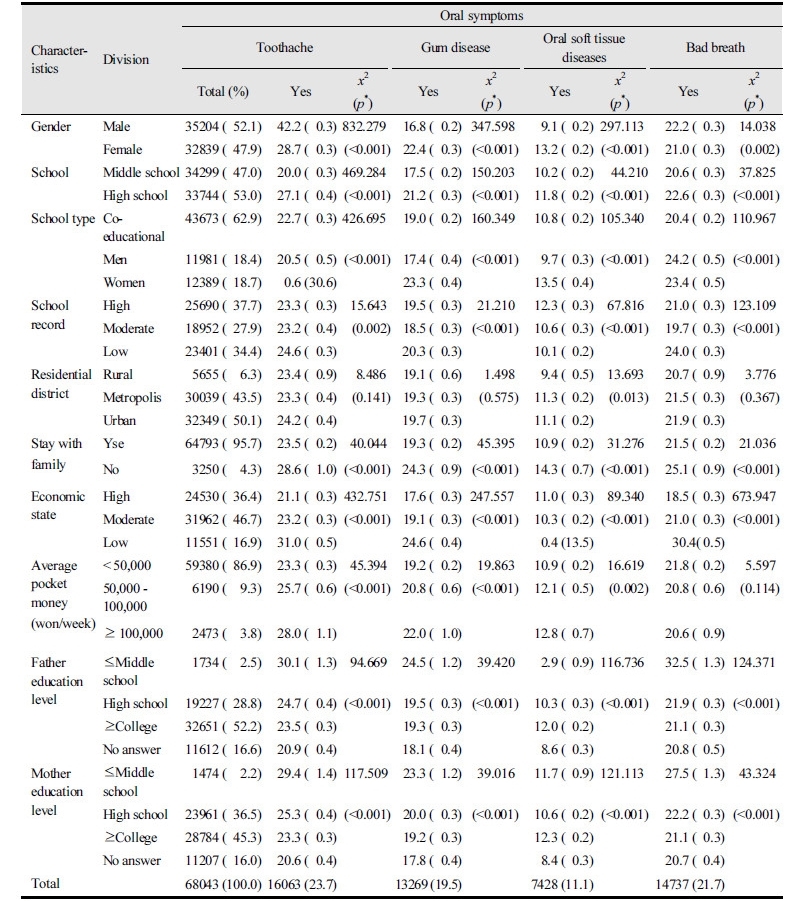Abstract
Objectives: The purpose of this study was to investigate the relationship between the level of subjective stress recognition and oral symptom experiences including toothache, gum diseases, and oral soft tissue diseases in the Korean adolescents. Methods: The subjects were 68,043 adolescents recruited using a web-based survey, National Korean Youth Risk Behavior in 2015 by the Korean Center for Disease Control. For statistical analysis, SPSS 21.0 for Windows was used. Descriptive analysis and a Chi-square test were conducted to determine the factors associated with general characteristics, health behaviors, oral health behaviors, and level of subjective stress recognition. Finally, to investigate the relationship between the level of subjective stress recognition and oral symptom experiences, logistic regression analysis was performed. Results: Toothache related subjective stress recognition level was significantly higher in the moderate group with the score of 1.59 (95% CI; 1.49-1.68), and was greater in the high group with 2.38 (95% CI; 2.24-2.53) compared to the low group. Gum disease related subjective stress recognition level was significantly higher in the moderate group with 1.41 (95% CI; 1.32-1.51), and was greater in the high group with 1.99 (95% CI; 1.86-2.13). Oral soft tissue disease related subjective stress recognition level was significantly higher in the moderate group with 1.59 (95% CI; 1.45-1.74), and was greater in the high group with 2.55 (95% CI; 2.33-2.79). Bad breath related subjective stress recognition level was significantly higher in the moderate group with 1.48 (95% CI; 1.39-1.57), and was greater in the high group with 2.10 (95% CI; 1.97-2.25). Conclusions: Higher subjective stress recognition level was found to affect the oral symptoms experienced. Therefore, the stress management plan should be prepared through the cause identification of the main stress in the adolescents. Practical and systematic education is needed for oral health management in the schools.
Figures & Tables

Table 1. Oral symptoms related to the general characteristics Unit: % (SE)


